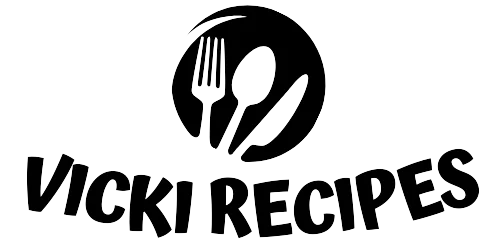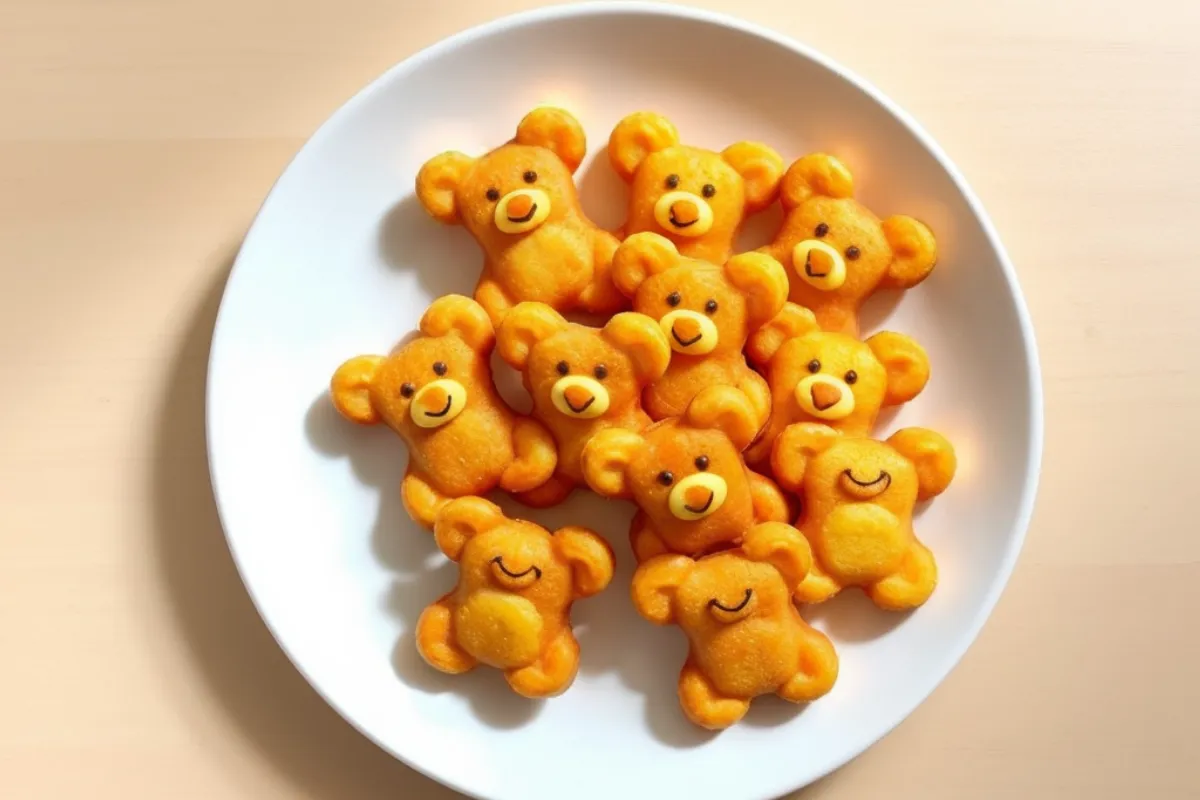When it comes to finding tasty snacks that are gluten-free, the options can sometimes seem limited. For those who follow a gluten-free diet due to celiac disease or gluten sensitivity, it’s crucial to be sure that every product consumed is safe. One popular option that many families enjoy is Morrison’s Potato Teddy Shapes Gluten-Free. But the big question is: are they gluten-free?
Introduction to Morrison’s Potato Teddy Shapes
Morrison’s Potato Teddy Shapes are a popular choice among parents and children alike. These fun, teddy-shaped potato bites are easy to prepare, making them a go-to for quick meals or snacks. However, for individuals who must avoid gluten, determining whether these snacks are safe to consume is a priority.
Understanding whether a product like Morrison’s Potato Teddy Shapes is gluten-free involves more than just glancing at the ingredients list. It requires an in-depth look at the manufacturing process, potential cross-contamination risks, and whether the product has gluten-free certification. Understanding Cross-Contamination is crucial for anyone managing a gluten-free diet, as even trace amounts of gluten can cause issues for those with severe sensitivities.
What Are Morrison’s Potato Teddy Shapes?
Morrison’s Potato Teddy Shapes are small, teddy bear-shaped potato bites made from fluffy mashed potatoes. They are designed to be a fun, appealing snack for kids and are often used as a side dish or a quick meal option. These potato shapes are suitable for baking or air frying, making them a versatile option in the kitchen.
Key Features
- Made with Fluffy Mashed Potatoes: Provides a soft, tender texture.
- Oven Bake or Air Fry: Versatile cooking options.
- Vegan-Friendly: Suitable for those following a vegan diet.
Despite these appealing features, the question remains: Are these potato shapes safe for those avoiding gluten?
Ingredients and Their Gluten-Free Status
To determine if Morrison’s Potato Teddy Shapes are gluten-free, we must first examine the ingredients. Here’s a breakdown of the primary ingredients and their gluten-free status:
Ingredient Analysis
- Potatoes: Naturally gluten-free.
- Vegetable Oil: Usually gluten-free unless cross-contaminated.
- Salt: A naturally gluten-free seasoning.
- Modified Starch: This can be tricky. Depending on the source, modified starch could be derived from wheat, making it a potential source of gluten. It’s essential to verify the origin.
- Spices and Seasonings: Sometimes gluten can be hidden in flavorings or additives.
While the primary ingredients themselves may be gluten-free, the concern for those with gluten sensitivity or celiac disease is whether there is any cross-contamination during production or if any hidden gluten is present in the additives. For instance, the presence of modified starch raises questions unless it’s explicitly stated as gluten-free.
Manufacturing Process and Cross-Contamination Risks
The manufacturing process of food products plays a significant role in determining whether they are safe for those with gluten sensitivities. Even if the ingredients are gluten-free, if the product is made in a facility that also processes gluten-containing items, there is a risk of cross-contamination.
- Shared Equipment: If the same machines are used to produce gluten-containing products, traces of gluten may contaminate otherwise gluten-free items.
- Inadequate Cleaning Protocols: Without stringent cleaning measures, cross-contamination can occur.
- Storage: If gluten-free products are stored near gluten-containing ones, contamination can happen.
Manufacturers who wish to market their products as gluten-free often take extra precautions to prevent cross-contamination. They might dedicate certain production lines to gluten-free items or conduct rigorous testing to ensure the safety of their products. Verifying Gluten-Free Status of a product is an important step for consumers.
Gluten-Free Certification and Labeling
For consumers who need to avoid gluten, gluten-free certification provides reassurance that a product has been tested and verified as safe. Certification organizations like the Gluten-Free Certification Organization (GFCO) have strict standards that products must meet to carry their label.
Importance of Gluten-Free Certification
- Trust: Certification provides confidence that the product is safe.
- Safety: Products labeled as gluten-free have been tested to contain less than 20 parts per million (ppm) of gluten.
- Transparency: Certified products often have detailed information about their testing and manufacturing processes available to consumers.
To identify gluten-free products, look for labels such as the GFCO’s certification mark. Additionally, it’s important to understand the labeling regulations in your country, as these can vary.
Comparing Morrison’s Potato Teddy Shapes with Other Gluten-Free Snacks
For those following a gluten-free diet, it’s essential to compare different snack options to determine which ones are both safe and enjoyable. Morrison’s Potato Teddy Shapes can be compared with other popular gluten-free snacks such as Pom-Bears, a well-known gluten-free potato snack.
Advantages and Disadvantages
- Morrison’s Potato Teddy Shapes:
- Advantages: Fun shapes, versatile cooking options, suitable for vegans.
- Disadvantages: Potential risk of cross-contamination if not certified gluten-free.
- Pom-Bears:
- Advantages: Certified gluten-free, widely available.
- Disadvantages: Limited in flavor options.
Price Comparison and Availability
When considering gluten-free snacks, price and availability are also important factors. Morrison’s Potato Teddy Shapes are generally affordable and available at most Morrison’s stores. However, their gluten-free status may require verification if they are not explicitly labeled as such.
How to Check for Gluten-Free Status in Similar Products
Determining whether a product is gluten-free requires diligence. Here are some steps to help you verify the gluten-free status of potato-based snacks like Morrison’s Potato Teddy Shapes:
Steps to Verify Gluten-Free Status
- Check the Label: Look for gluten-free certifications or mentions of gluten-free ingredients.
- Research the Manufacturer: Visit the manufacturer’s website for detailed information about their gluten-free offerings.
- Consult Online Resources: Websites like Gluten-Free Watchdog provide updated information on various products.
- Read Reviews: Customer reviews can often provide insights into whether a product is safe for those with gluten sensitivities.
By following these steps, you can make informed decisions about the products you include in your gluten-free diet.
Alternatives for Gluten-Free Consumers
If Morrison’s Potato Teddy Shapes do not meet your gluten-free needs, there are plenty of alternatives available. Here are a few options:
Other Gluten-Free Potato-Based Snacks
- Pom-Bears: As mentioned earlier, these are certified gluten-free and widely available.
- Kettle Chips: Many flavors are certified gluten-free and offer a crunchy alternative to teddy shapes.
- Gluten-Free Fries: Brands like Alexia offer gluten-free French fries that can be a great side dish or snack.
Homemade Alternatives
For those who prefer to avoid any risk of cross-contamination, making your own gluten-free potato snacks at home is a great option. Here’s a simple recipe:
Homemade Gluten-Free Potato Snacks
- Ingredients: Potatoes, olive oil, salt, optional herbs.
- Instructions: Slice potatoes thinly, toss in olive oil and seasonings, and bake at 400°F for 20-25 minutes until crispy.
FAQs
Are Morrison’s Potato Teddy Shapes Gluten-Free?
At the time of writing, Morrison’s Potato Teddy Shapes are not certified gluten-free, and there may be risks of cross-contamination. Always check the label and consult the manufacturer for the most up-to-date information.
How Can I Verify If a Product Is Gluten-Free?
To verify if a product is gluten-free, look for gluten-free certification labels, read the ingredient list, and research the manufacturer’s gluten-free policies.
Are There Any Vegan Gluten-Free Snacks Available?
Yes, there are several vegan gluten-free snacks available, including Morrison’s Potato Teddy Shapes (if confirmed gluten-free), Pom-Bears, and various gluten-free chips and crackers.
What Should I Look for on Labels to Ensure a Product Is Gluten-Free?
Look for specific gluten-free certifications, check for the absence of gluten-containing ingredients, and avoid products that mention potential cross-contamination with gluten.
Are All Potato-Based Snacks Gluten-Free?
Not all potato-based snacks are gluten-free. Some may contain gluten due to added flavorings, coatings, or cross-contamination during processing.
Health Considerations and Nutritional Information
While Morrison’s Potato Teddy Shapes might be a fun and convenient snack, it’s essential to consider the nutritional content and health implications, especially for those on a gluten-free diet.
Nutritional Content
- Calories: Moderately high, depending on portion size.
- Fats: Typically contain fats from oils used in preparation.
- Sodium: May contain added salt, contributing to higher sodium intake.
Health Benefits and Drawbacks
While these snacks can be part of a balanced diet, it’s important to consume them in moderation, especially considering their calorie and fat content. For those managing celiac disease or gluten sensitivity, ensuring the snack is gluten-free is paramount.
Portion Control and Balanced Diet Tips
- Moderation: Enjoy Morrison’s Potato Teddy Shapes as an occasional treat rather than a staple.
- Balanced Diet: Complement your snacks with fruits, vegetables, and whole grains (if gluten-free) to ensure a well-rounded diet.
Conclusion
In conclusion, while Morrison’s Potato Teddy Shapes are a delightful and convenient snack, their gluten-free status requires careful consideration. Always verify the gluten-free status of products, especially if you have celiac disease or gluten sensitivity. For those concerned about cross-contamination or gluten content, exploring certified gluten-free alternatives or making homemade snacks may be the safest option.
Remember, a balanced approach to snacking is key to maintaining a healthy, gluten-free lifestyle. Always stay informed, read labels carefully, and choose products that meet your dietary needs.

